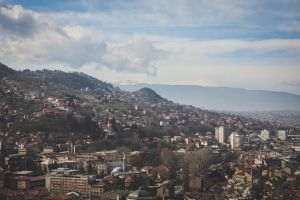The Secretary General of the United Nations, Antonio Guterres, raised the alarm about the major problems facing the planet. Antonio Guterres has issued a global climate "SOS". The Pacific Islands Summit organized by the United Nations (UN) brought to the fore one of the most acute problems facing humanity: the rapid rise of sea levels and the devastating impact on the Pacific Islands.
• A vulnerable region
The Pacific Islands are some of the most vulnerable regions in the world to climate change. Although their contribution to global greenhouse gas emissions is minuscule - less than 0.02% of the annual total - these islands are disproportionately exposed to the devastating effects of global warming. Not only do they have a small population and few heavy industries, but they are also in a tropical corridor that is rapidly being threatened by encroaching oceans.
• Accelerated sea level rise
Since the 1990s, the World Meteorological Organization (WMO) has been monitoring sea levels on Pacific beaches. A new report by the UN climate watchdog found that sea levels have risen by about 15 centimeters in some parts of the Pacific over the past three decades. This growth is well above the global average of 9.4 centimeters for the same period. There are, however, significant variations across the region. While some islands, such as Kiribati and the Cook Islands, have seen sea level rise nearly equal to the global average, other places, such as the capitals of Samoa and Fiji, have experienced nearly three times the rise. In Tuvalu, a low-lying island nation, the situation is even more dramatic. Available land is so scarce that children use the international airport runway as a makeshift playground.
• Devastating social and economic implications
Sea level rise has serious consequences for Pacific island communities. Land loss, coastal erosion, contamination of fresh water resources and destruction of natural habitats are just some of the immediate effects of this phenomenon. Moreover, these islands are highly dependent on natural resources and tourism, both of which are threatened by rising sea levels. In Tuvalu and other similar nations, climate change is an existential threat. A large part of the population is already forced to relocate, and the future prospects are bleak. In addition, land loss and forced migration will have profound effects on the culture and identity of these communities.
Read here about marine protected areas
• Call for global action
Antonio Guterres' statement at the Tonga summit underscores the need for urgent global action to combat climate change and protect the Pacific islands. He called on the international community to step up efforts to reduce carbon emissions and provide financial and technological support to vulnerable regions. "It is increasingly clear that we are running out of time to change the situation," warned Celeste Saulo, a top official at the UN's climate forecast agency. The message is clear: unless swift and decisive action is taken, the Pacific islands could become among the first victims of a global climate catastrophe.
Presa: UE va cheltui 3,5 miliarde de euro pentru protejarea oceanelor
The Pacific Islands are a microcosm of the global climate crisis. Although they contribute minimally to the causes of climate change, they bear a disproportionate share of the consequences. The situation in the Pacific reminds us that climate change is not only an environmental issue, but also an issue of social and moral justice. The international community must respond to this climate "SOS" with solidarity and concrete action, before these paradises are lost forever.























































